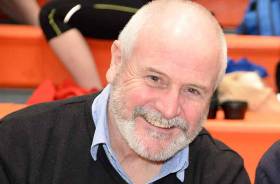Displaying items by tag: Eamonn Colclough
#Rowing: The agm of Rowing Ireland was businesslike and brief – coming in under an hour.
Neville Maxwell, the chair of the high performance committee, praised the “energy and enthusiasm” of high performance director Antonio Maurogiovanni. “He wants a system which is open and transparent,” he said.
Maxwell said that there was a move away from lightweight rowing and it was essential to build a programme which would last. Finding new sources of income was very important.
Leo Gibson replaced outgoing treasurer Dan Buckley, who has stepped down. The Old Collegians man spoke of the hope of drawing down Large Scale Sports Infrastructure grants.
Rowing Ireland president Eamonn Colclough said the priority was to finance work on the National Rowing Centre, with the hope of replacing the slips and, perhaps, the buoyed course. Next in priority would be Lough Rinn and then the proposed new Blessington course.
Colclough said that he hoped there was a big uptake on the package deal which will give Irish spectators a good way to travel to the World Rowing Championships in Linz in Austria in August/September. “I would love to hear The Fields of Athenry ring out over the waters in Linz,” he said.
Rowing Ireland is preparing to facilitate clubs using Lough Rinn by taking over the insurance requirements asked for by Leitrim County Council. The Council will “spend hundreds of thousands of euro” on developing the course and surrounds, Colclough told the agm.
The fixtures calendar for 2020 emerged in a very similar form to the one proposed. Erne Head moved to a week earlier than scheduled and will now take place on March 7th and the Castleconnell Sprint Regatta takes a similar step to May 9th. Carlow’s Dambuster Head is set to take place on February 1st.
Galway Regatta (June 6th) and Shandon Masters Regatta (August 15th) were late additions to the draft calendar put before delegates.
Awards
President’s: Seamus Scully, Carlow
Connacht: Paul Gallen
Leinster: Gerry Conway, Frank Moore, Willie Ryan, Mick Carney, Andrew Coleman
Munster: Brian Sheppard
Ulster: Jeremy Johnston
Colclough Elected President At Dramatic Rowing Ireland AGM
#Rowing: Eamonn Colclough (pronounced Coakley) was elected president of Rowing Ireland at the annual general meeting in Garda Boat Club in Dublin. The Tribesmen member, who is originally from Dublin, beat Kieran Kerr of St Michael’s by just one vote, 25-24. Colclough made a strong speech which was critical of Rowing Ireland’s failure to land a major sponsorship after the stellar year of 2016, when there were two Olympic finalists and one medal. He said that the sport needed to grow; to bring in new recreational members and to put behing it what he saw as over-reliance on the National Rowing Centre in Cork.
Mick O’Callaghan launched a forceful attack on the outgoing board. He said they had forced out Morten Espersen, who is stepping down from his role as High Performance Director. The outgoing president, Con Cronin, defended the board and said he had been transparent in his own dealings.
A Skibbereen motion to add under-21 events to the Irish Championships was defeated.





























































